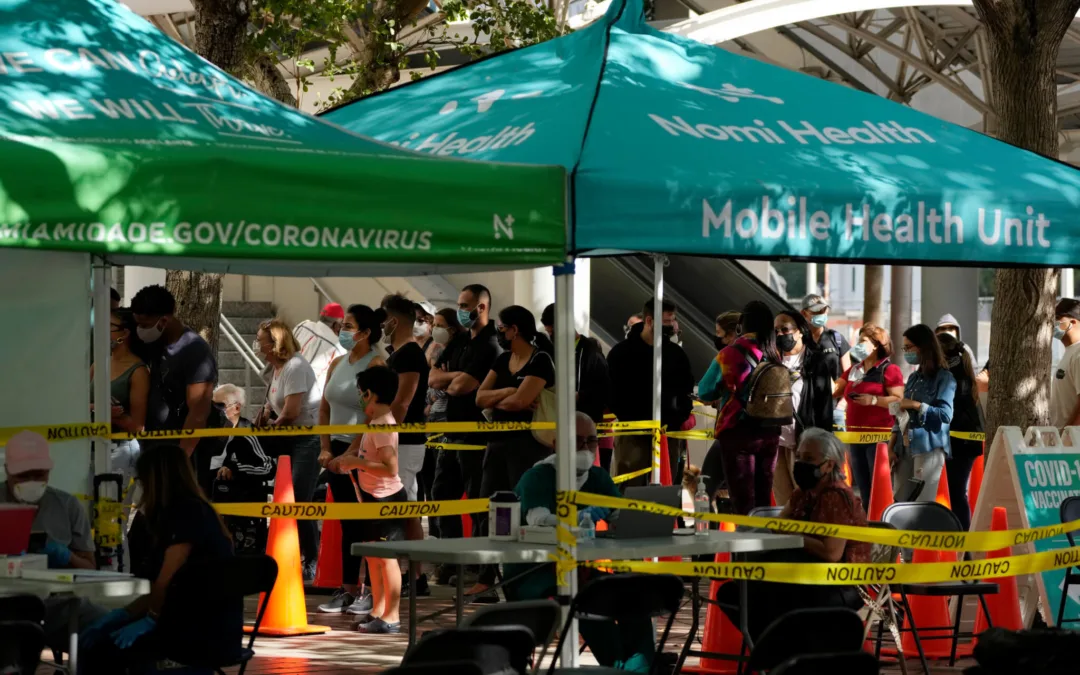
Image via Tania Lili for The Americano
Under normal circumstances, only 17% of Americans actively seek science news but coronavirus has made math and science information relevant and urgent for everyone. The pandemic is forcing us to make sense of overwhelming information about the virus, infection, testing, therapies, medical equipment needed, rates of mortality, and much more. With Covid-19, the ability to process and question facts versus anecdotes, opinions, and feelings could mean the difference between life and death. Which should lead us to ask: Has the American education system prepared us for this?
Unfortunately, when it comes to science and math education, American leadership is a myth. According to the Programme for International Student Assessment, referred to as PISA, which measures the ability of 15-year-old students to understand and apply reading, science, and math skills to real-life challenges across 79 countries and economies, the United States has trailed other countries for decades, making little to no progress in 20 years. In 2018, the US ranked 18th in science literacy and 37th in math literacy when compared to other education systems around the world.
RELATED: It Takes A (Virtual) Village To Navigate Homeschooling Expectations During Quarantine
Every day we are making judgments and decisions in relation to this pandemic, making it extremely important that we are asking good math and science questions. Here are two good questions to ask and why they matter.
What data or information supports that statement or belief?
On March 20, Dr. Anthony Fauci, Director of the National Institute of Allergy and Infectious Disease, plainly said that there was no evidence that hydroxychloroquine could be used to cure or prevent COVID-19, followed by President Trump stating that “I’m probably more of a fan of that than — maybe than anybody. But I’m a big fan, and we’ll see what happens,” and “I agree with the doctor, what he said: It may work, it may not work. I feel good about it. That’s all it is. Just a feeling. You know, I’m a smart guy.” In a tragic turn, the confounding of facts and feelings is believed to have contributed to the death of a man in Arizona who ingested a related chemical thinking it was a cure for Covid-19.
How do the numbers support the conclusion?
On March 24, Dr. Deborah Birx, coordinator for the White House Coronavirus Task Force, said that in the previous 8 days the U.S. had conducted 220,000 tests, as many as South Korea had done in 8 weeks. A factual statement in terms of total numbers. However, the next day the statement was enhanced by Trump saying “but we now are doing more testing that anybody, by far. We do more in eight days than they do in eight weeks. And we go up, on a daily basis, exponentially. So, it’s really good.” This claim implies that a bigger proportion of the population is being tested in the US than elsewhere and that is simply inaccurate. Math literacy allows us to understand that the numbers are accurate but they are being incorrectly used to tell an inaccurate story. Believing that we have reached a level of testing comparable to that of South Korea which has gained some control over the coronavirus contagion can lead people to have a false sense of security about their chances of infection and the availability of testing.
Scientists and journalists have been actively dispelling Covid-19 myths. Here in the U.S., our sense of complacency with a K-12 education system that fails to educate our children equitably and with excellence is contributing to systemic misunderstandings and misapplications of math and science facts about the virus, which is in turn threatening our public health. It’s time to start asking better questions—especially— how well and equitably are we preparing our children for the challenges of today and tomorrow?
Politics

Teamsters and UPS Reach Tentative Deal to Avoid Strike, 340,000 Workers to Get Raises
The tentative deal represents a huge win for full- and part-time UPS Teamster workers, who would get significant pay raises and better working...



One Republican Senator Is Blocking 265 Military Promotions, Leaving the Marines Without a Confirmed Leader
Sen. Tommy Tuberville's decision means these military officers are not getting the pay raises they’re owed, cannot move their families to wherever...
Local News



Teamsters and UPS Reach Tentative Deal to Avoid Strike, 340,000 Workers to Get Raises
The tentative deal represents a huge win for full- and part-time UPS Teamster workers, who would get significant pay raises and better working...



One Republican Senator Is Blocking 265 Military Promotions, Leaving the Marines Without a Confirmed Leader
Sen. Tommy Tuberville's decision means these military officers are not getting the pay raises they’re owed, cannot move their families to wherever...




